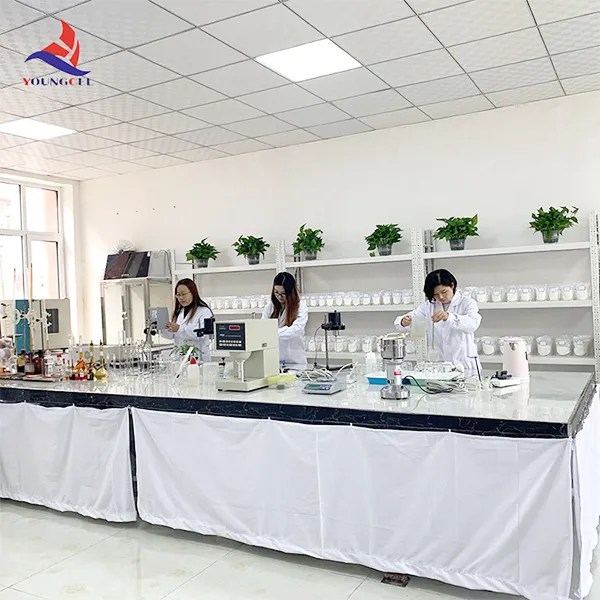The Role of HPMC in Cement Applications
Hydroxypropyl Methylcellulose (HPMC) is a significant polymer used in construction materials, notably in cement-based applications. As a non-ionic, water-soluble cellulose ether, HPMC has garnered attention in the construction industry for its numerous advantages, including improved workability, water retention, and adhesion properties. This article explores the essential role of HPMC in cement formulations and its impact on the overall quality and performance of cement products.
Enhancing Workability
One of the key benefits of incorporating HPMC in cement mixtures is its ability to enhance workability. Workability refers to the ease with which a cement paste can be mixed, transported, placed, and finished. HPMC improves the fluidity of the mix without adding excessive water, which can dilute the cement's strength. This is particularly advantageous for applications requiring precise manipulation of the material, such as in tile adhesives, plastering compounds, and grouts. A well-worked mixture translates to a smoother application, optimized labor efforts, and reduced chances of defects.
Water Retention Properties
HPMC exhibits excellent water retention capabilities, preventing the premature loss of water from the surface of the cement during the curing process. This is critical because adequate moisture is necessary for the hydration of cement particles, which in turn is vital for developing the desired strength and durability of the final product. By enhancing water retention, HPMC ensures that the cement remains workable for an extended period, allowing for more flexibility during construction and less risk of cracking or shrinkage as the mixture dries.
Improved Adhesion
hpmc for cement

The incorporation of HPMC into cement formulations also leads to improved adhesion properties. This is especially beneficial when dealing with tile adhesives and surface mortars. HPMC enhances the bonding strength between the substrate and the applied material, resulting in a stronger and more durable bond. The adhesive capability of HPMC is attributed to its unique molecular structure, which helps to bridge gaps between different materials at the microscopic level, thus promoting better adhesion and reducing the likelihood of delamination or failure.
Performance in Different Environments
Another advantage of HPMC in cement applications is its versatility across various environmental conditions. The properties of HPMC allow it to perform well in both dry and wet conditions, making it suitable for diverse applications ranging from exterior wall coatings to indoor renovation projects. Its resistance to temperature fluctuations and moisture variations also means that cement products containing HPMC can better withstand the rigors of outdoor applications, enhancing their longevity.
Eco-Friendly Alternative
Moreover, HPMC is considered a more environmentally friendly option in comparison to other synthetic additives. As a cellulose derivative, it is derived from natural sources and has a lower environmental impact when used in building materials. The use of HPMC can also lead to reduced waste and decreased consumption of resources, aligning with the industry's increasing focus on sustainability and green construction practices.
Conclusion
In conclusion, Hydroxypropyl Methylcellulose plays a vital role in enhancing the performance of cement-based products. By improving workability, increasing water retention, and enhancing adhesion, HPMC significantly contributes to the durability and effectiveness of cement applications. As the construction industry continues to pursue innovative materials and sustainable building practices, HPMC stands out as a valuable component that combines functionality with environmental responsibility, making it an essential addition to modern cement formulations.






